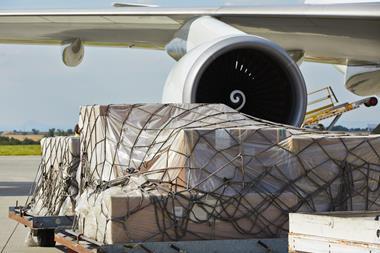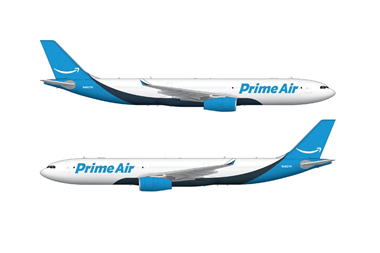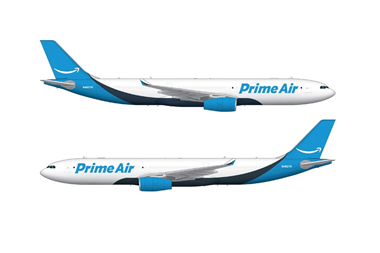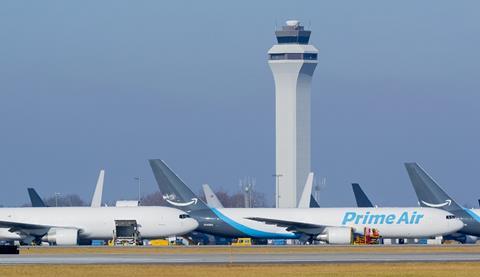
Amazon Air has confirmed that it is now selling cargo capacity on its aircraft to third parties, including ad hoc and charter services.
The carrier said in a LinkedIn post that Amazon Air Cargo is now open for business serving domestic networks across North America, Europe, the Middle East & Africa (EMEA) and Asia.
"Built on the backbone of Amazon's world-class logistics network, we’re ready to handle, transport, and deliver your goods safely, securely, and efficiently—on time, every day," the company claimed.
Amazon said it could provide space on more than 100 aircraft with more than 250 daily flights, including partner airlines, and would also offer ad hoc, charter, or blocked space services.
The airline said it would be able to carry general cargo, pharmaceuticals, perishables, dangerous goods and parcels with its fleet of Boeing 737, Boeing 767 and Airbus A330 aircraft.
According to its website, the carrier has already provided services for Airblox, Apex Logistics and Naniq Global Logistics.
"We’re always working to develop new, innovative logistics solutions that support Amazon customers," the company said in a statement to Air Cargo News.
"Amazon Air Cargo has been offering third-party shippers access to Amazon’s logistics network to deliver air shipments with speed and reliability since 2019, and we are excited to now expand the service to more cargo customers."
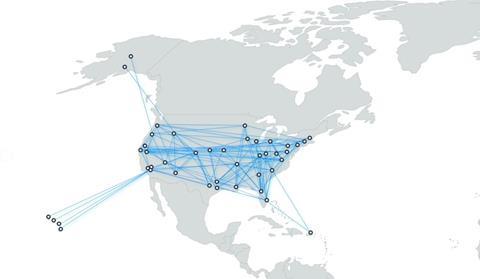
The move into third-party selling has been expected for some time.
Bloomberg first reported that the company was looking to expand its services into the air cargo market in January last year.
The carrier reportedly began selling backhaul space on aircraft operating to Hawaii and Alaska, carrying perishable items such as pineapples and salmon.
In early 2021, a Chaddick Institute for Metropolitan Development report suggested that Amazon would look to move into third-party selling in the coming years.
“Amazon would likely focus on retailer-to-consumer shipments — e.g., moving packages from retailer warehouses to consumers — without trying to replicate the comprehensive services offered by FedEx and UPS, which have vast door-to-door networks,” the report said.

At this stage, it is not clear if the move is a long-term strategy to compete with the likes of FedEx and UPS or a measure to fill spare capacity that it cannot fill with its own cargo.
The slowdown in e-commerce growth following the Covid pandemic – where people turned to online shopping due to restrictions – led the e-commerce company to slow the expansion of its fleet as it adjusted to the lower volumes.
More recently, it has been adding new deals, with expanded partnerships announced with ATSG and Sun Country.
It has also faced the challenge of competing with Chinese e-commerce giants such as Temu and Shien that fly packages directly to consumers from Asia without the need to manage a network of warehouses to store stock.
This year the carrier has reduced its daily flying, with the carrier conducting 202 daily flights in February 2024, compared with 205 a year earlier, as it simplified its network by flying to fewer airports and creating more of a hub and spoke network, matching the likes of UPS and FedEx.
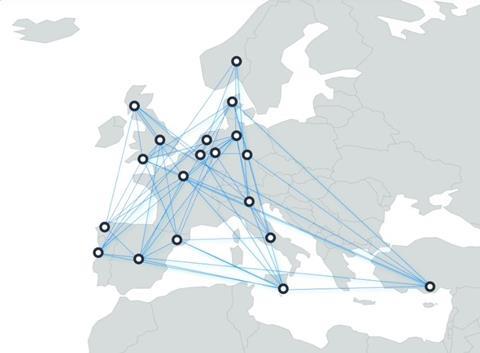
https://www.aircargonews.net/1071490.article
https://www.aircargonews.net/1070417.article










